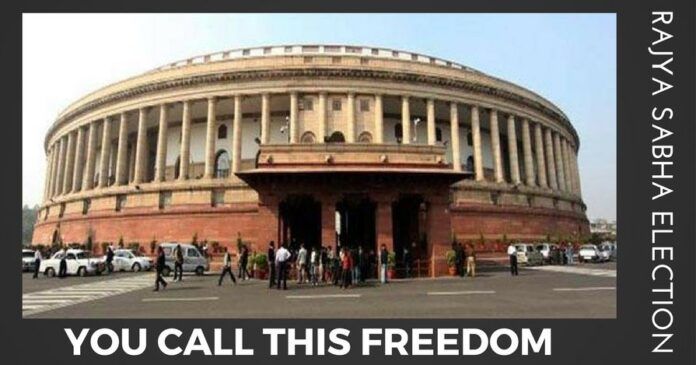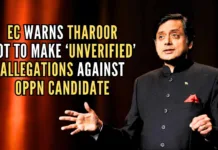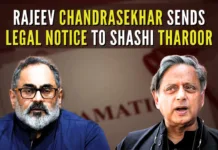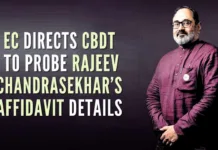
70 years of freedom has been hollowed out
In the rough-and-tumble of the recent Rajya Sabha elections, everybody refused to see the stark reality that stared them in the face: people’s representatives are not free men and women; they are the chattel of party bosses who can herd them anywhere they deem fit for their flock from the evil influences of the rival party.
The terms and expressions that must have been used by slavers have become part of the mainstream political discourse—and nobody is bothered
And this happened against the backdrop of the nation celebrating 70 years of Independence with gusto. Again, nobody noticed the incongruity in the herding and the celebrations held simultaneously.
Technically, in the parliamentary form of democracy, the executive is responsible to the legislature; in practice, though, it is the other way around. Parliamentarians and Members of Legislative Assembly have to obey the diktats of their respective party leaderships. Democracy stands on its head: while lawmakers are directly elected by the people and thus should be answerable to them (the people), in practice they become answerable to, indeed servants of, and party managers. And servants, like slaves and sheep, can be herded or shepherded around as per the convenience and requirements of apparatchiks.
What is really depressing is that the taming of people’s representatives, and therefore the undermining of democracy, has been going on for decades; the language continues to betray the fact that democracy is being degraded. Such expressions as ‘the chief minister is trying to keep his flock together’, ‘MLAs have been herded to a resort,’ and ‘the party has issued a whip to the MLAs’ are regularly used in political parlance.
Worse, the users of these expressions, including top journalists and other opinion makers, remain blissfully unaware of the subconscious acceptance of the degradation of democracy. The terms and expressions that must have been used by slavers have become part of the mainstream political discourse—and nobody is bothered. That is the real calamity.
It was the 52nd amendment to the Constitution in 1985, the anti-defection law in common parlance, that made Members of Parliament (MPs) and of state Legislative Assemblies (MLAs) the slaves of party bosses. The Statement of Objects and Reasons of the Fifty-second Constitution Amendment Bill, 1985 read: “The evil of political defections has been a matter of national concern. If it is not combated, it is likely to undermine the very foundations of our democracy and the principles which sustain it.”
The new legislation, ostensibly enacted to end “legislative anarchism,” provided that a lawmaker would cease to be a member of the legislature: if he resigns from the party on whose ticket he was elected; if he votes, or abstains from voting, in the House “contrary to any direction” issued by the political party to which he belongs; or if he has been expelled from such political party “in accordance with the procedure established by the Constitution, rules or regulations” of such party.
A people’s representative does not have the right to vote according to his conscience
The author of the law, the law minister Ashoke Sen, claimed that it would “cleanse the political life of this country of the dirt accumulated over the years.” It didn’t happen but another malady was introduced: people’s elected representatives were enslaved.
The Opposition viewed the Bill very differently, saying that it would confer legitimacy on party despotism. L.K. Advani of the Bharatiya Janata Party (BJP) lamented that this would “muffle dissent forever in a party like the Congress (I)…”
It is another matter that when his party was in office in 2003, and he was deputy prime minister, the party decided to make the law even more stringent. The 1985 law recognized a “split” in a party of at least one-third members of the legislature party decided to form or join another political party. The BJP-led government, however, introduced the 91st amendment to the Constitution in 2003, making the requirement for split or merger stiffer: since then, at least two-third members of a legislature party need to leave the party. Evidently, Advani & Co forgot the ‘muffle dissent’ rhetoric. In a way that was not surprising, for the law minister at that time was Arun Jaitley, the party manager par excellence.
Hypocrisy, however, is not the monopoly of the BJP. Speaking at the Kerala Literature Festival in Kozhikode, Kerala, on February 5, 2017, Congress MP and former Union minister Shashi Tharoor said the anti-defection law negatively impacted democracy as it diminished the voting power of people’s representatives. “The anti-defection law has a negative impact on democracy. A people’s representative does not have the right to vote according to his conscience. He has to vote on what his party says,” PTI quoted him in its report.
The same old story: introduce illiberal laws when in power, and slam such legislation when in the Opposition.
The same old story: go lyrical about 70 years of Independence, while ignoring the taming of people’s elected representatives; sing paeans to freedom, while overlooking the fact that freedom has been hollowed out and the remnant is a shell. Adorn the shell, forget the kernel.
Note:
1. The views expressed here are those of the author and do not necessarily represent or reflect the views of PGurus.
- Liberty Is Penalized, Violence Goes Untouched - December 21, 2019
- Rahul’s Howdy bloomer - September 22, 2019
- Chidambaram’s hypocrisy - August 22, 2019











Maybe there is a middle ground in this regard.
While the anti-defection law does confer a lot of power to the party high command, it could be dangerous for the country when the top leadership of the party is compromised. This is particularly dangerous when the top leadership of the party is susceptible to influences from corporate giants, foreign powers, lobbies and anti-national forces. And we have seen that a select few powerful individuals and families run some of the top political parties of India.
On the other hand, the absence of an anti-defection law may encourage horse trading. It is highly idealistic to assume that if MPs/ MLA’s were given free-will to vote as per their conscience/ in the interest of the people/ their constituency, they would do that. They may still solicit money from rivals to sell their votes.
Ideally, the situation should be that the MLAs/ MPs should oppose even their party/ leadership (without fear of retribution/ removal from party) if they believe that some legislation is contrary to public interest. This system is prevalent in developed countries like USA. (Republicans are finding it tough to repeal ObamaCare).
We could introduce a system of secret ballot in Parliament/ State legislatures, where legislators could vote secretly (not necessarily as per whip issued by party). That way there is no way to ascertain who has voted for what!!. This has happened in the Indian Presidential election.
Some effective mechanism (after studying efficient and effective democracies across the world) has to be adopted whereby the country is not held hostage to the whims and fancies of a select few and that the laws passed in legislature are in public interest and reflect the will of the public. At the same time, we should also ensure that important decisions/ legislation are not held up due to parliamentary delays.
It may not be so easy to control the elected one as it will lead to horse trading if laws are not framed to discourage .However majòrity of politicians are interested in self development rather than the people. Democracy is good as well as bad to nation.
If a elected legislature jumped to other political party his legislature ship should canceled he is selected by the people on the assumption that he obeys the idea of the party at the time selection.when he jumps to other party he is away from the ideology of that party.so he is against the people’s selection.Majority of the people voter for him on condition that he stands for the party’s ideology.when he jumps to other party he is doing it against the will of the Voters.It means he does a injustice to the voters.it is against rule of the country .He should get punishment because he does a thing against the majority of voters of constuancy.
Anti-defection law was brought to prevent every ‘aya Ram-gaya Ram’making/breaking parties/Govts every now and then for selfish ends to enjoy RULING POWER,creating instability in center/states.To that extent it was a good law.
Problem arose with rise of a all-powerful HIGH COMMAND culture in parties which is virtual dictatorship. Situation is worse when large amount of money/promises change hands to carry out POLITICAL TREACHERY.
A third and more effective way has to be found to ensure freedom to elected reps,avoid instability and horse trading.